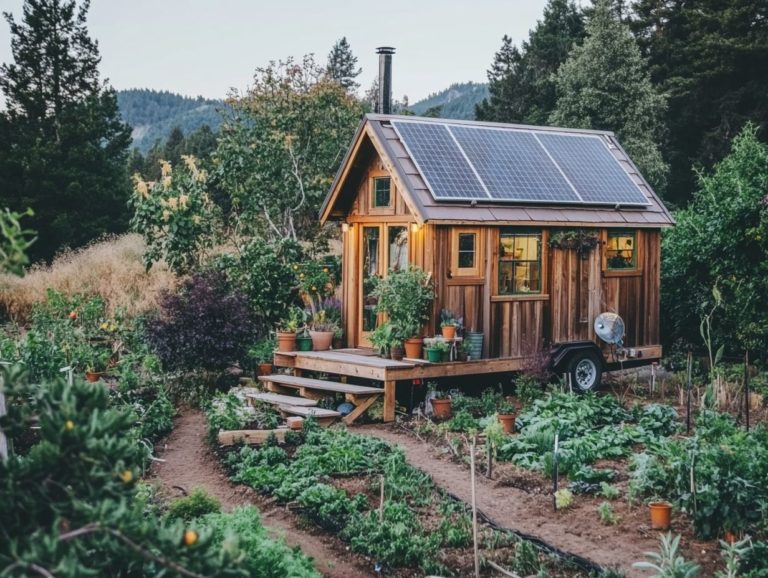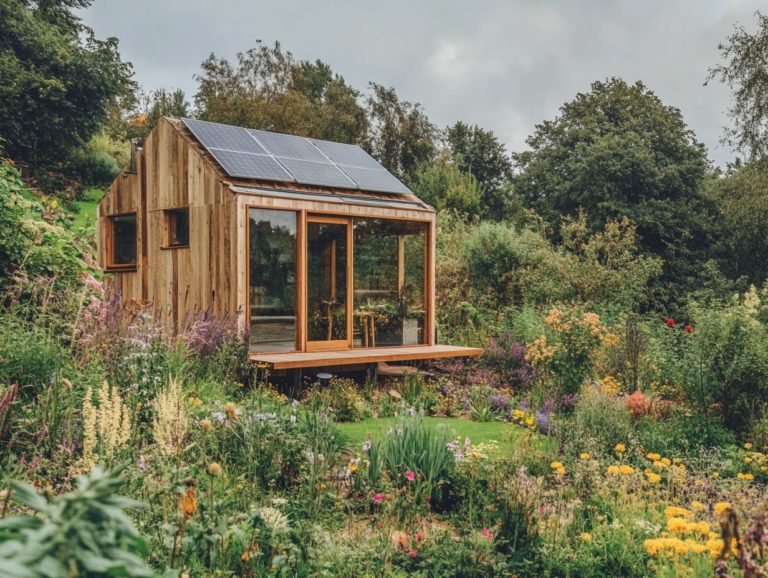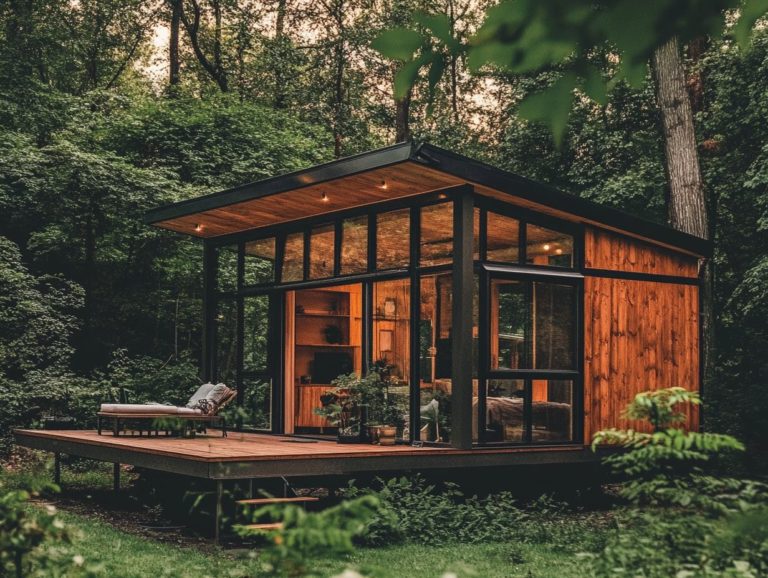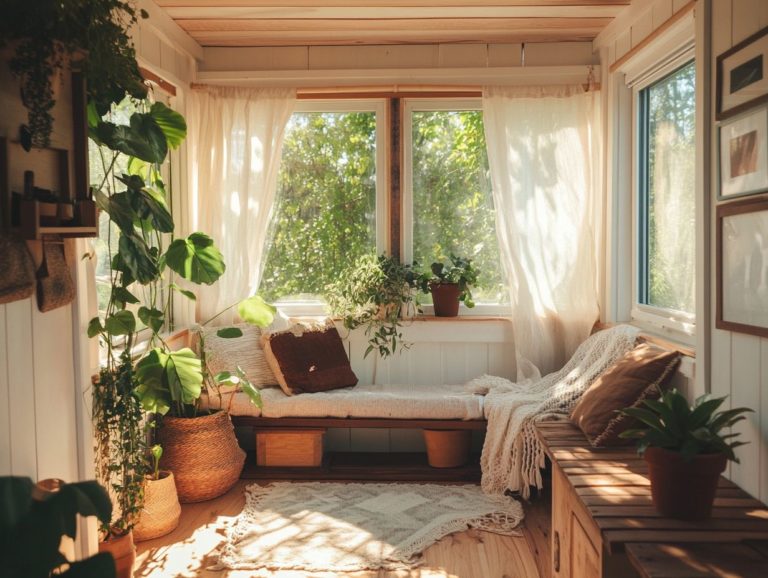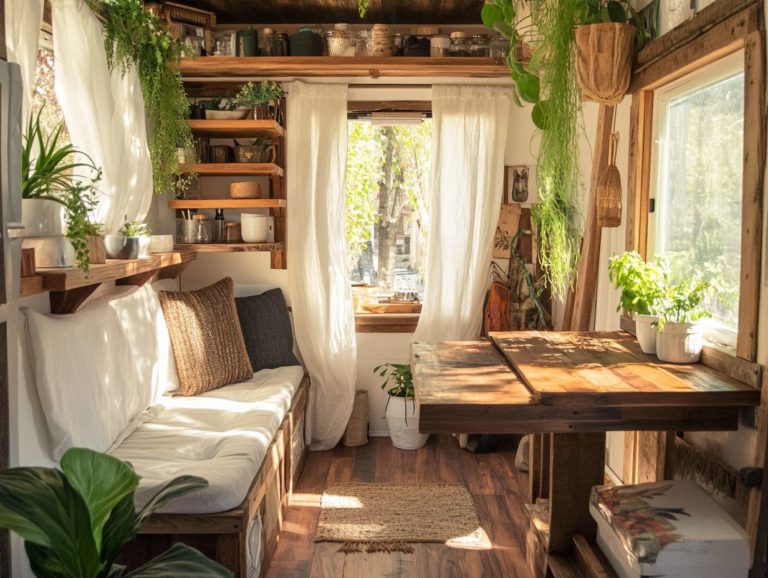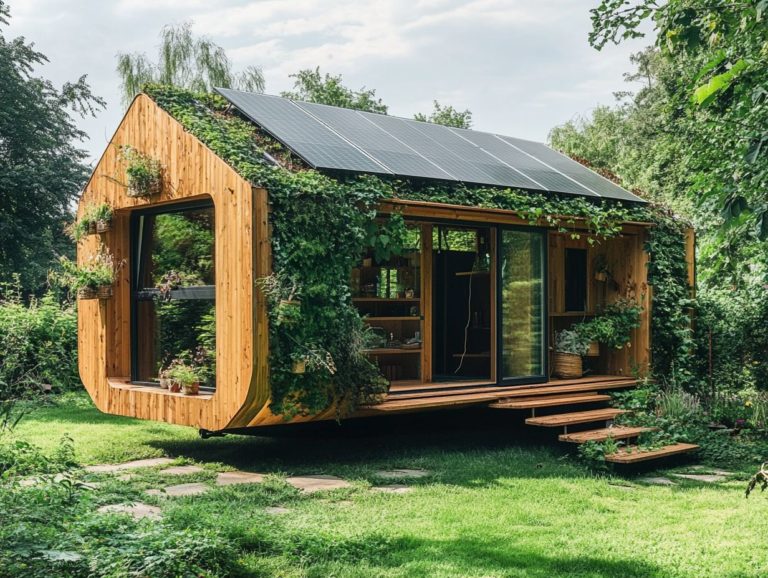Bamboo: The Fastest Growing Sustainable Material
Bamboo is not merely a plant; it s a remarkable powerhouse of sustainability and versatility. Renowned for its rapid growth and exceptional strength, bamboo has garnered the interest of eco-conscious individuals and industries alike.
This article delves into its defining characteristics, environmental benefits, and diverse applications, ranging from construction to textiles. You’ll uncover sustainable growing practices and see how bamboo measures up against other materials regarding impact and durability.
Discover the latest innovations that are transforming this extraordinary resource. Prepare to learn why bamboo stands out as the fastest-growing sustainable material on the planet.
Contents [hide]
Key Takeaways:
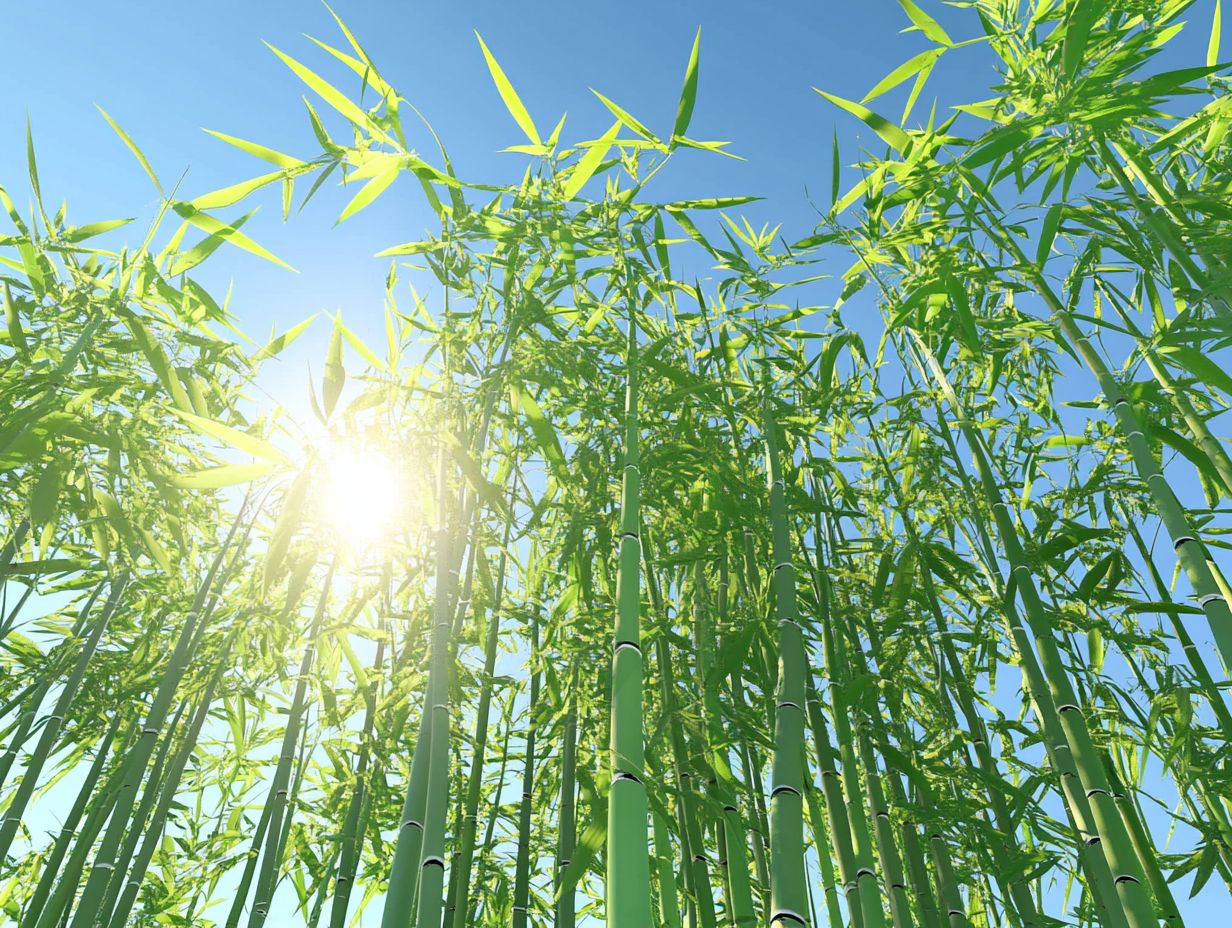
- Bamboo is a highly renewable and sustainable resource, with the ability to capture carbon and grow rapidly without the need for harmful pesticides or fertilizers.
- Not only is bamboo versatile in its uses from construction to textiles but it also has a lower environmental impact and can be just as durable as other materials.
- Recent innovations in bamboo technology have led to exciting new uses for the material, further solidifying its position as the fastest growing sustainable material in the world.
What is Bamboo?
Bamboo is a truly remarkable plant, celebrated for its astonishing growth rate and versatility. Often regarded as a sustainable and renewable resource, it provides a wealth of environmental benefits.
Predominantly found in regions such as China, bamboo distinguishes itself with unique characteristics like durability, moisture resistance, and pest resistance. This makes it an exceptional choice for a myriad of applications, from construction to eco-friendly products.
Its remarkable ability to flourish in diverse conditions solidifies its position as one of the most coveted materials in today s green economy.
Definition and Characteristics
Bamboo is a fast-growing grass that boasts impressive durability and unique features, making it a versatile choice for various applications.
Imagine this remarkable plant reaching heights of up to 91 centimeters in just a single day now that s what you call extraordinary growth! Its hollow structure provides inherent strength, making it an excellent alternative to traditional timber in construction, all while being more sustainable.
This eco-friendly material not only absorbs significant amounts of carbon dioxide, enhancing air quality, but its extensive root system also prevents soil erosion, showcasing its valuable environmental benefits.
Plus, bamboo’s natural resistance to pests and diseases means you can say goodbye to chemical treatments, positioning it as the ideal option for builders and consumers in search of sustainable solutions.
Environmental Benefits of Bamboo
The environmental benefits of bamboo are truly remarkable. It offers significant advantages in reducing carbon footprints and addressing climate change through effective carbon capture. This extraordinary plant is known for being environmentally friendly, thriving with minimal resources while enhancing biological carbon capture in the soil.
With its rapid growth rates, bamboo can absorb more carbon dioxide than traditional hardwoods, positioning itself as an essential renewable resource in your journey toward a carbon-neutral future.
Renewable Resource and Carbon Capture
Bamboo is celebrated as a remarkable renewable resource, thanks to its astonishing growth rate and its exceptional ability to sequester carbon effectively, making it a crucial player in the ecosystem.
Just imagine: this extraordinary plant can shoot up by as much as three feet in a single day, placing it among the fastest-growing flora on the planet. Its extensive root system not only stabilizes the soil but also plays a significant role in capturing carbon dioxide from the atmosphere.
By absorbing substantial amounts of CO2, bamboo actively contributes to mitigating the effects of climate change, enhancing biodiversity (the variety of living things in an area), and improving soil health. As communities and industries increasingly recognize the potential of bamboo, it stands out as a sustainable alternative across various applications, solidifying its reputation as a key ally in the fight against climate change.
Uses of Bamboo
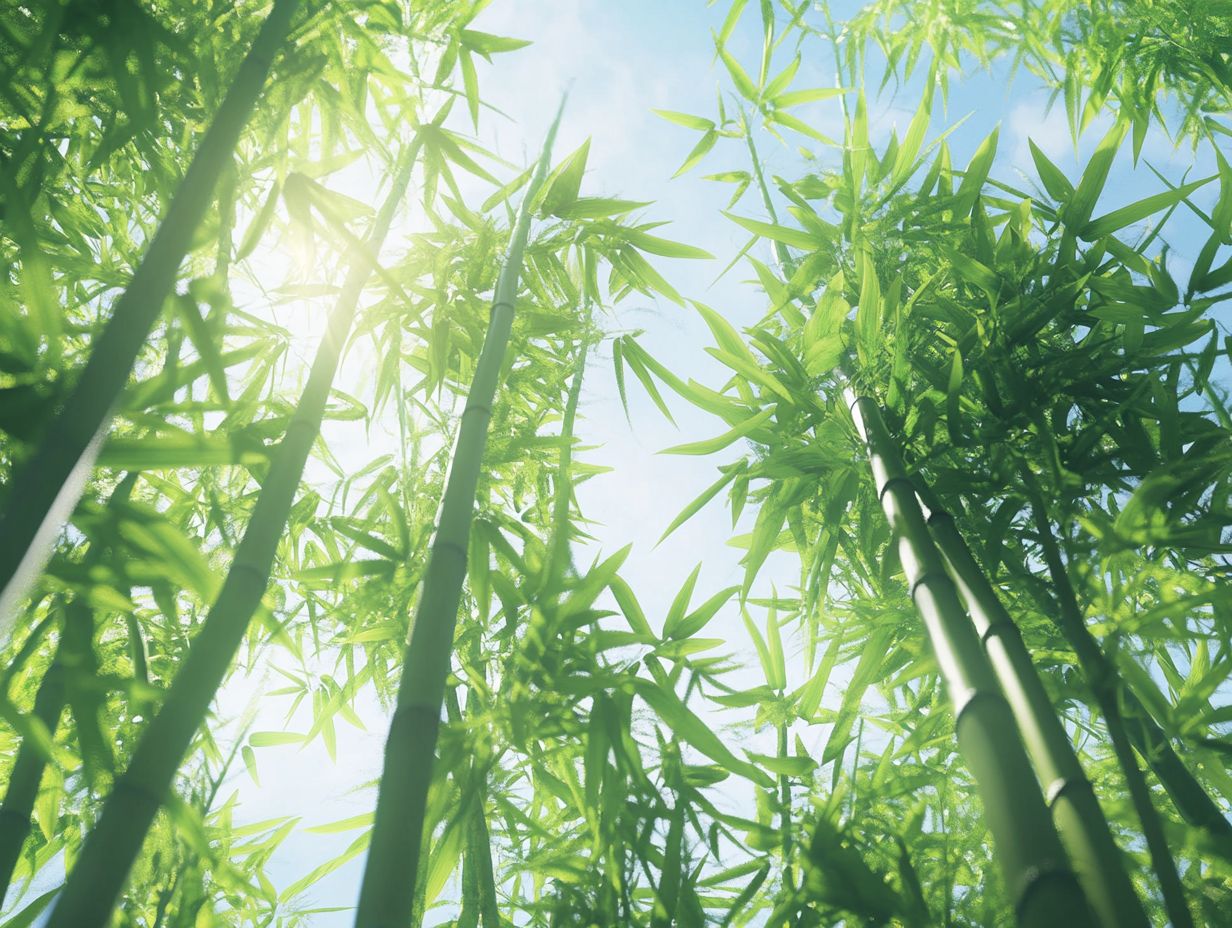
Bamboo presents an impressive range of uses across numerous industries, establishing itself as a premium choice for those dedicated to sustainable living and products that are good for the environment!
You ll find bamboo textiles emerging as a stylish alternative to harmful plastics. Durable bamboo flooring and furniture showcase the material’s versatility!
This eco-friendly gem not only offers practical benefits but also exudes aesthetic charm, capturing the attention of environmentally conscious consumers everywhere.
Embracing bamboo means stepping into a world where sustainability meets elegance!
Amazing Uses in Construction and Textiles
Bamboo has carved out a remarkable niche in construction and textiles, celebrated for its strength and sustainability.
It stands out as an excellent alternative to traditional timber, offering durable framing solutions that can withstand earthquakes and other natural disasters!
Its lightweight nature not only makes it easier to transport but also streamlines your construction processes, enhancing efficiency.
When it comes to furniture making, this versatile plant transforms into stunning, durable pieces like tables, chairs, and shelving, each boasting unique aesthetics that can rival conventional materials!
Sustainable textiles made from bamboo fibers provide you with an eco-friendly option for clothing and accessories. They deliver breathability and comfort without the environmental burden posed by cotton or synthetic fabrics!
By opting for bamboo products, you can actively support a greener planet, enjoying the benefits of a reduced carbon footprint and less reliance on less sustainable resources.
Growing and Harvesting Bamboo
Growing and harvesting bamboo demands a commitment to best practices that foster sustainable growth! This offers significant advantages for both the environment and local communities.
By employing methods that mitigate soil erosion and managing pests through eco-friendly alternatives rather than harmful pesticides, you can cultivate bamboo in a productive and environmentally responsible way.
These proper techniques not only accelerate bamboo’s impressive growth but also enhance biodiversity and improve soil health! This positions it as an appealing choice for sustainable agriculture.
Top Tips for Growing Bamboo Sustainably
Implementing best practices for sustainable bamboo growth ensures a thriving ecosystem while maximizing your yield!
Embrace a holistic approach! Enhance soil fertility with natural amendments like compost and green manure. These methods enrich nutrient content without compromising the environment.
Utilizing cover crops is another smart move. They not only prevent soil erosion but also increase biodiversity, fostering a vibrant habitat for beneficial organisms!
In terms of pest control, consider organic methods like introducing natural predators (other insects that eat harmful pests) or using neem oil. These strategies safeguard your bamboo plants from harmful pests while promoting ecological balance.
By adopting these practices, you ll not only support robust bamboo development but also align with broader sustainability goals. This contributes to a resilient agricultural landscape that benefits both you and the planet!
Comparing Bamboo to Other Materials
When you compare bamboo to other materials, its environmental impact becomes strikingly clear. This is especially true regarding durability and sustainability!
Unlike traditional hardwoods and virgin wood, which demand extensive resources and years of growth, bamboo offers a fast-growing alternative that significantly reduces ecological footprints while delivering comparable strength and durability!
This notable distinction positions bamboo as a premier choice for environmentally conscious consumers who seek materials with a low impact.
Explore bamboo products today and make a positive impact on our planet!
Environmental Impact and Durability
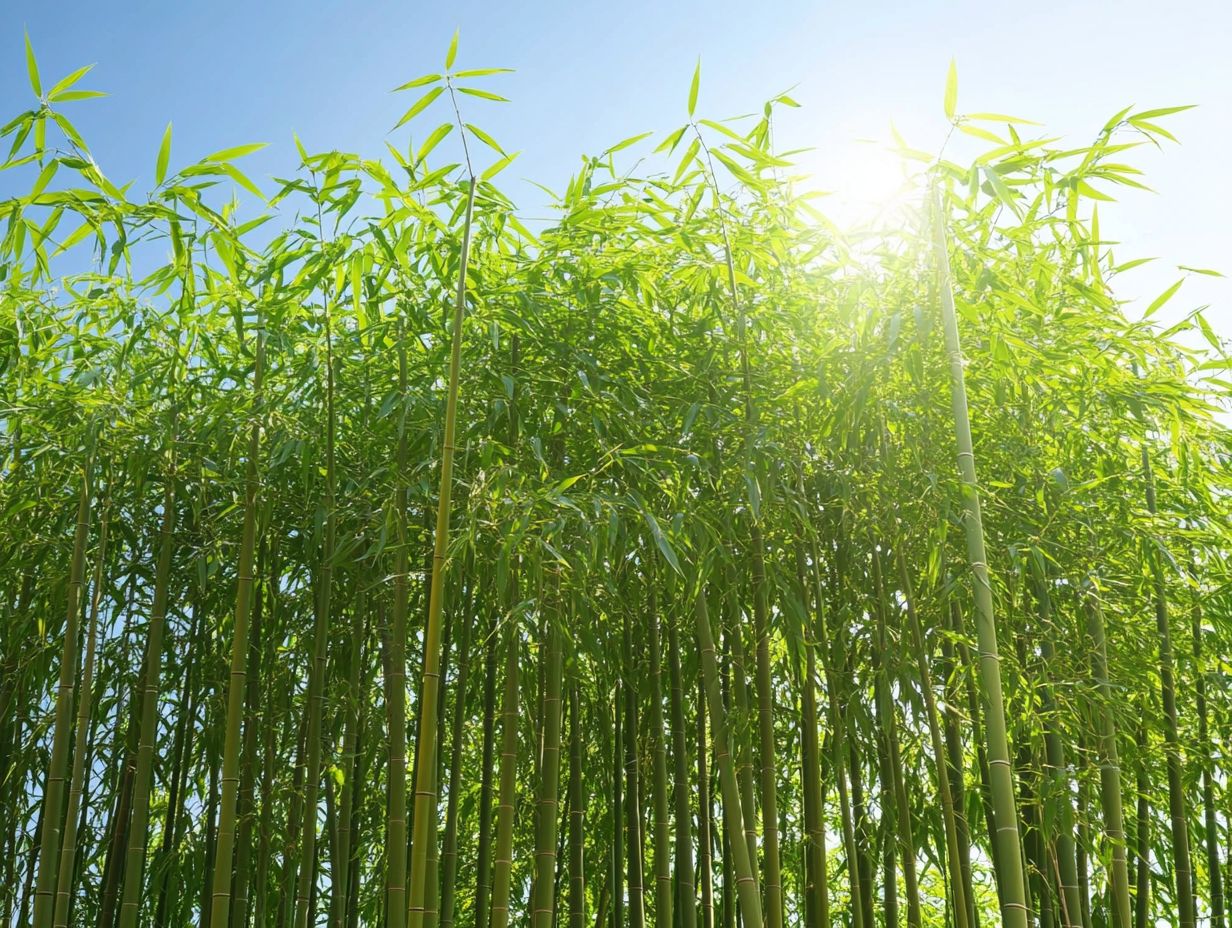
Bamboo s environmental impact is remarkably lower than that of traditional wood, establishing it as a durable and sustainable choice for your projects.
This fast-growing grass matures swiftly, often within just three to five years. It also absorbs carbon dioxide at a significantly higher rate than hardwood trees.
Bamboo s strength rivals that of steel, making it an exceptional option for construction and furniture.
Unlike traditional wood, which can take decades to replenish, harvesting bamboo typically requires no replanting. This remarkable regenerative ability positions bamboo as a leader in sustainable building practices, helping alleviate pressure on forests and fostering a healthier environment.
Innovations in Bamboo Technology
Innovations in bamboo technology have revealed a realm of exciting new applications that extend beyond traditional uses, highlighting its versatility and potential for the future.
Bamboo technology paves the way for sustainable alternatives across numerous industries. You ll find everything from biodegradable packaging solutions to cutting-edge construction materials engineered to minimize carbon footprints.
New and Exciting Uses for Bamboo
Recent innovations have unveiled many exciting uses for bamboo, elevating its status as a premier sustainable solution across various sectors.
In the packaging industry, bamboo-based materials are swiftly gaining traction due to their biodegradable properties. They offer a compelling alternative to traditional plastics, which are often harmful to the environment.
Companies are now harnessing bamboo to create eco-friendly packaging solutions that decompose naturally, significantly reducing landfill waste.
In construction, bamboo is celebrated for its strength and versatility. It is being used in scaffolding, flooring, and even as a primary material in sustainable homes.
These advancements underscore bamboo’s renewable nature and enable industries to embrace greener practices that align with global sustainability goals.
Frequently Asked Questions
What is bamboo and why is it considered the fastest growing sustainable material?
Bamboo is a type of grass known for its rapid growth rate. It can grow up to 35 inches in a single day, making it the fastest-growing plant on Earth. It is also sustainable because it can be harvested without causing harm to the environment.
How is bamboo used as a sustainable material?
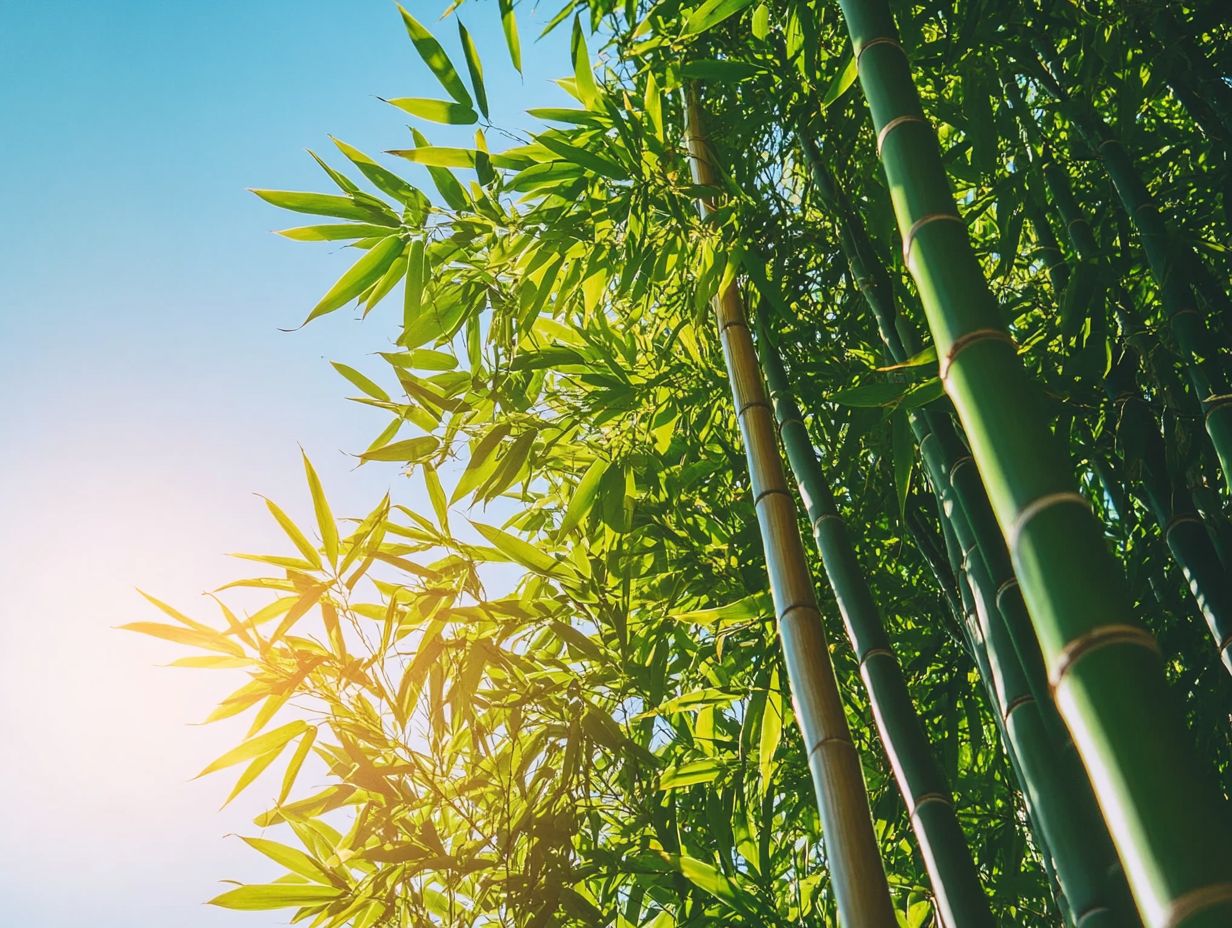
Bamboo is used in construction, textiles, and furniture, among other industries. It can be made into building materials like flooring and roofing, as well as clothing and household items.
Bamboo’s sustainability comes from its quick growth and the fact that it can be harvested without damaging the plant or its environment.
Is bamboo a better alternative to other materials?
Bamboo is a fantastic choice compared to other materials, such as wood, plastic, and cotton. It is more sustainable because of its fast growth and doesn t require harmful pesticides or fertilizers to thrive.
Additionally, bamboo is strong and durable, making it a great option for various products.
Can bamboo be grown and harvested sustainably?
Yes, bamboo can be grown and harvested sustainably. By using responsible harvesting techniques like selective harvesting and replanting, bamboo can continue to thrive without harming the environment.
This also allows for a continuous supply of bamboo for various industries.
Explore the benefits of bamboo products and join the movement toward sustainable materials today!
What are the environmental benefits of using bamboo?
Using bamboo offers many environmental benefits. This fast-growing plant helps reduce carbon dioxide levels and improves air quality.
It also prevents soil erosion and can be grown without harmful chemicals. Bamboo forests also provide homes for many animal species.
Is bamboo a renewable resource?
Yes, bamboo is considered a renewable resource, meaning it can be replenished naturally. Unlike other materials that take years to grow, bamboo can be harvested every 3-5 years.
Its vast root system allows it to regenerate quickly. This makes bamboo an excellent choice for various industries looking for sustainable options.

